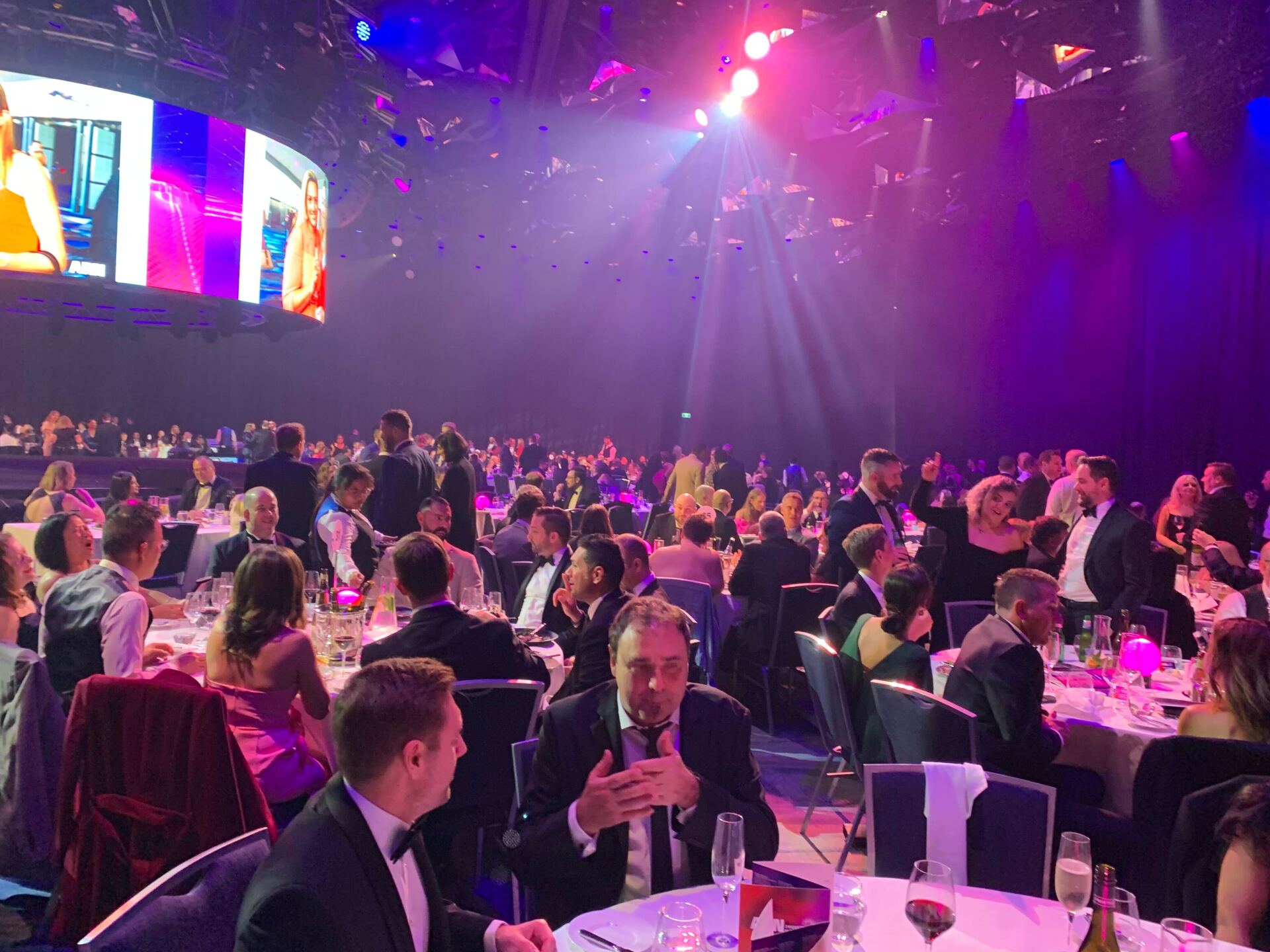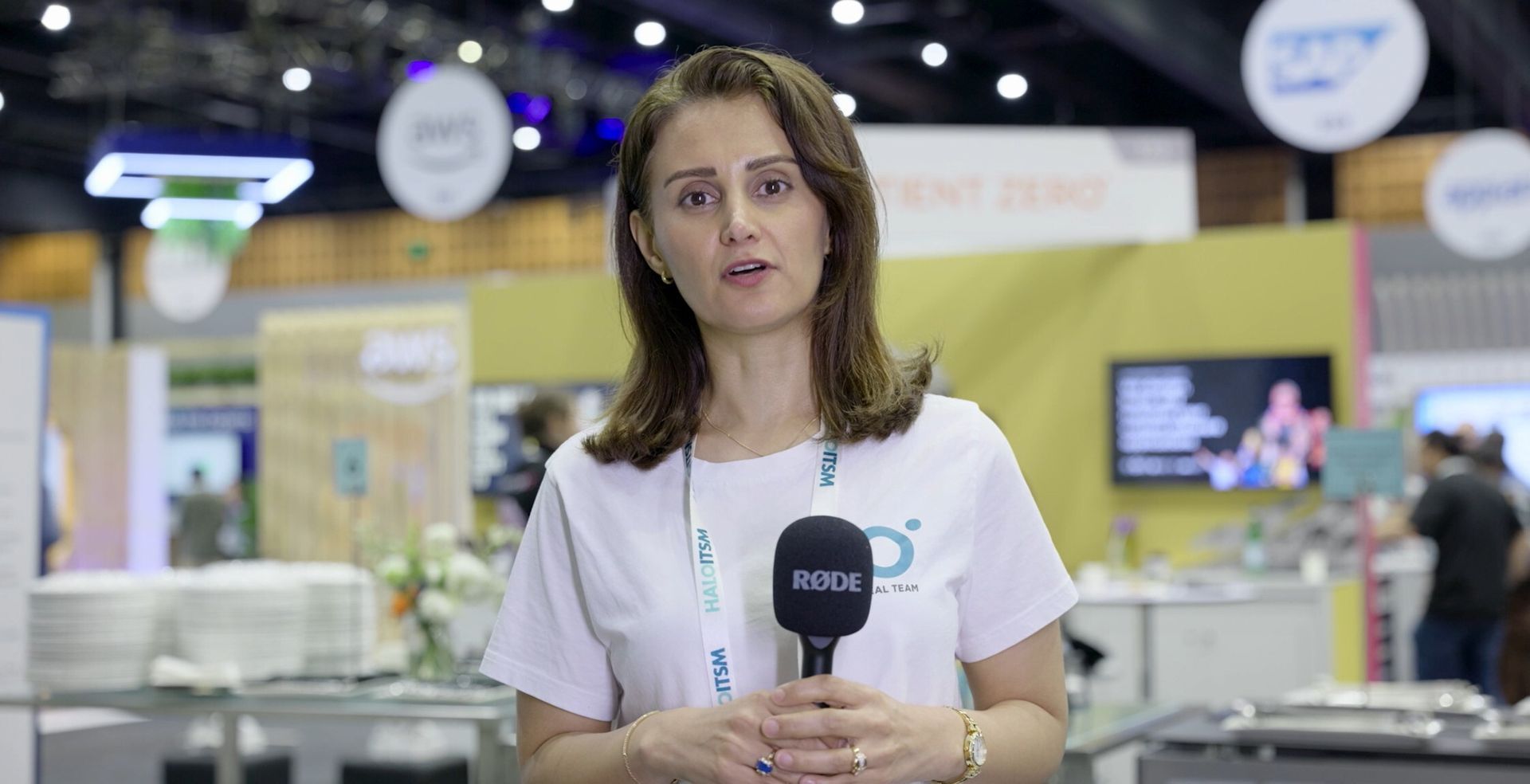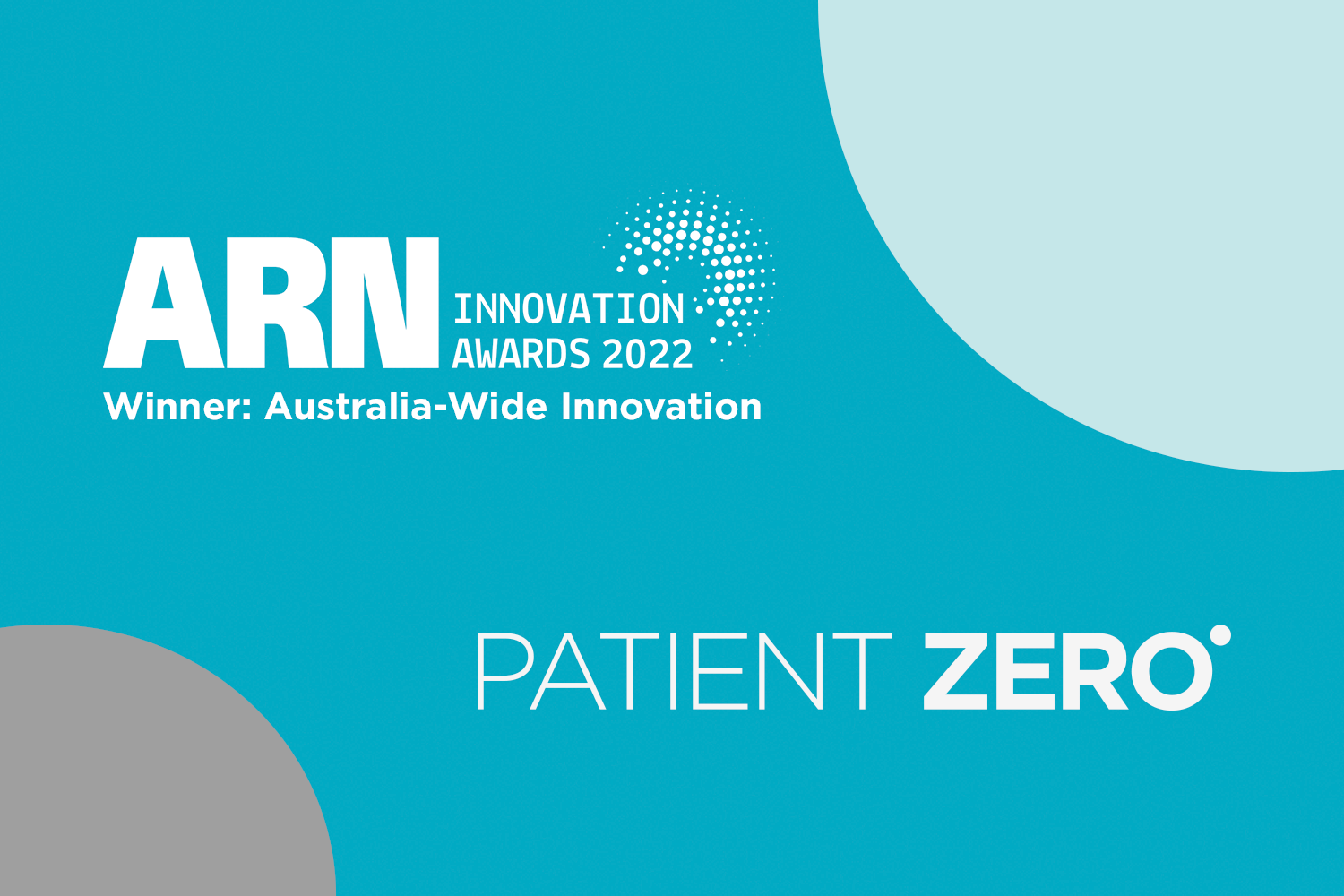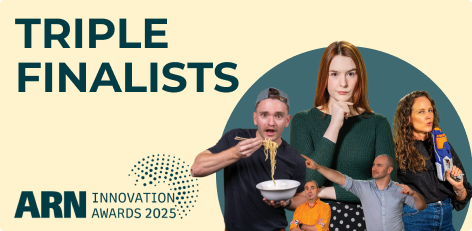Patient Zero scoops at the ARN Innovation Awards
We’re thrilled to share that we scooped an ARN Innovation Award last week, with the judges recognising us as Australia-Wide Winner in the Tech Innovation category.
The Tech Innovation award recognises partners leveraging established and emerging solutions to enhance customer innovation levels, underpinned by deep levels of expertise and specialist services.
This award recognises the contribution of every single one of our team members in delivering exceptional customer outcomes through our unique Way of Working.

While there’s lots we could say - we thought the ARN Innovation Awards judges said it best.
The judges shared that: “Patient Zero has been recognised for its delivery of consulting engagements and implementation via its unique ‘Way of Working’ model to help overcome delivery challenges. The Brisbane-headquartered application developer gears each of its consulting engagements towards driving organisational change and transformation resulting in winning and growing significant customer accounts.”
Tobias Smith, one of our developers, was pretty chuffed that our whole team was recognised for our unique way of working and that this recognition could help spread our team-based delivery model across Australia.
"I'm happy to hear that we were recognised for ARN's Australia-Wide Innovation Award, because it recognises that our way of working is successful,” Tobias said.
“That's exciting because I want our way of working to propagate throughout the industry as it empowers teams to focus on delivery rather than having to deal with the non-delivery time sinks like meetings and constant design/architecture approvals.”

Tobias shared that the key benefit that our developers and clients find is that decisions are made quickly - and solutions are quickly tested in real world conditions.
“The idea here is that you want to trust that the people that you've hired are smart enough to make the right decisions and let them make decisions quickly. Our Way of Work enables us to make decisions fast - and fail fast - because the best way to see if a solution will work is to test it out in the real world conditions it's meant for,” Tobias continued. “Through this we can iterate fast, and deliver faster - we find out early on what works and what doesn't… as well as getting to tackle fun challenging problems sooner.
Through this award, Tobias hopes that other workplaces will realise trusting teams to deliver leads to happier developers and adopt this way of working.
“I hope that the industry recognition through this award can help all workplaces realise that iterating fast and trusting teams is the best approach to delivery. Following this approach to delivery will lead to happier clients - and developers - in the future across Australia.
Both get a win-win out of this empowering style of development,” Tobias concluded.
Share This Post
Get In Touch
Recent Posts





